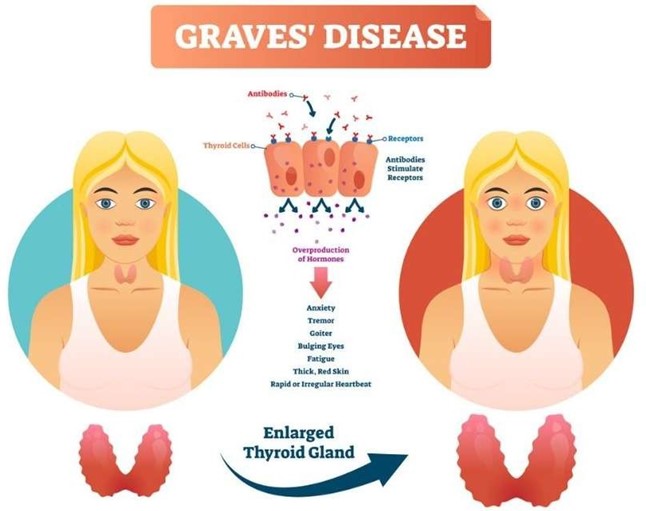A nurse is caring for a client who reports taking propranolol for several years but has recently stopped for financial reasons.
The nurse should assess the client for which of the following findings?
Bradypnea.
Hyperkalemia.
Tachycardia.
Rhinitis.
The Correct Answer is C
Propranolol is a beta-blocker that is used to treat high blood pressure and other heart conditions.
Abrupt discontinuation of propranolol can result in a variety of adverse reactions, including tachycardia (increased heart rate).
Choice A is wrong because bradypnea (abnormally slow breathing) is not a known withdrawal symptom of propranolol.
Choice B is wrong because hyperkalemia (high potassium levels) is not a known withdrawal symptom of propranolol.
Choice D is wrong because rhinitis (inflammation of the nasal mucous membrane) is not a known withdrawal symptom of propranolol.
Nursing Test Bank
Naxlex Comprehensive Predictor Exams
Related Questions
Correct Answer is C
Explanation

Methimazole is a medication used to treat hyperthyroidism, a condition where the thyroid gland produces too much thyroid hormone.
Bradycardia, or a slow heart rate, can be a sign that the client’s thyroid hormone levels have become too low, indicating that the dose of methimazole may need to be decreased.
Choice A is wrong because Exophthalmos, is not an indication for a lower dose of methimazole as it is a symptom of Graves’ disease itself and not related to the medication.
Choice B is wrong because Diaphoresis, or excessive sweating, is also not an indication for a lower dose of methimazole as it can be a symptom of hyperthyroidism.
Choice D is wrong because Weight loss, is also not an indication for a lower dose of methimazole as it can be a symptom of hyperthyroidism.
Correct Answer is A
Explanation
The nurse should withhold the dose of propranolol and notify the provider.
Using propranolol together with albuterol may reduce the benefits of both medications, since they have opposing effects in the body.
In addition, propranolol can sometimes cause narrowing of the airways, which may worsen breathing problems or trigger severe asthmatic attacks.
Choice B is wrong because there is no known interaction between albuterol and isosorbide mononitrate.
Choice C is wrong because there is no known interaction between albuterol and pantoprazole.
Choice D is wrong because there is no known interaction between albuterol and montelukast.
Whether you are a student looking to ace your exams or a practicing nurse seeking to enhance your expertise , our nursing education contents will empower you with the confidence and competence to make a difference in the lives of patients and become a respected leader in the healthcare field.
Visit Naxlex, invest in your future and unlock endless possibilities with our unparalleled nursing education contents today
Report Wrong Answer on the Current Question
Do you disagree with the answer? If yes, what is your expected answer? Explain.
Kindly be descriptive with the issue you are facing.
